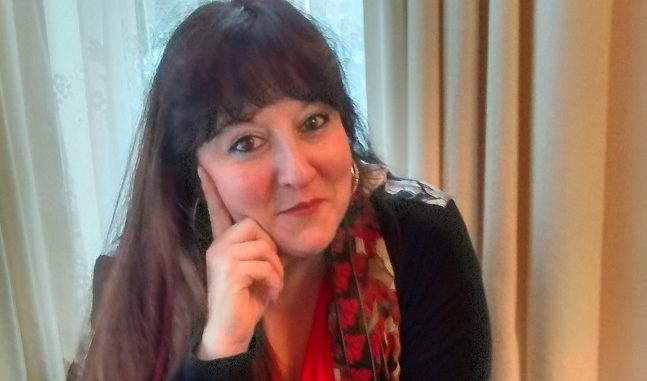
This week (February 5-11) has been Children’s Mental Health Week.
Reporter Rachel Bell profiles Thanet Family Liaison Officer Pia Joulianou who is a Children’s Champion for mental wellbeing and runs the Sunbeams group for pupils at Callis Grange Nursery and Infant School. Mrs Joulianou has invited mental health ‘ambassador’ Prince Harry to attend an event she will be holding this Spring:
As Prince Harry has helped bring the conversation on mental health into the mainstream, a Thanet-based counsellor and creative arts therapist is showing the importance of starting early, building confidence and resilience in children of infant school age.
With more than 20 years experience of working with families and children, Pia Joulianou has seen how poor mental wellbeing negatively impacts on ability and enjoyment of learning – and on academic achievement in the longterm.
Mrs Joulianou is also the family liaison officer at Callis Grange Nursery and Infant School in Broadstairs where she and head teacher Alison Marshall are pro-active about pupils’ emotional wellbeing.
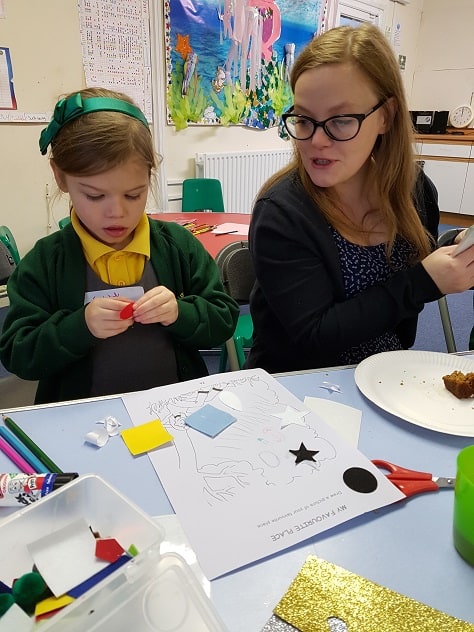
Mrs Joulianou said: “Many factors in a child’s circumstances or sensitive personality, pressures from limiting stereotypes in the wider culture or a lack of self-confidence can all contribute to a child feeling unhappy, limited and not ready to learn and reach their potential.
“To support children experiencing difficulties, I run a group called Sunbeams at the school, raising children’s self-esteem and resilience, and breaking down any barrier to learning with a programme of fun and creative activities and games.”
Starting early is key. Mrs Joulianou works with children as young as six and says that it is often change and the absence of support to cope and adapt to that change that prevents children from fulfilling their potential.
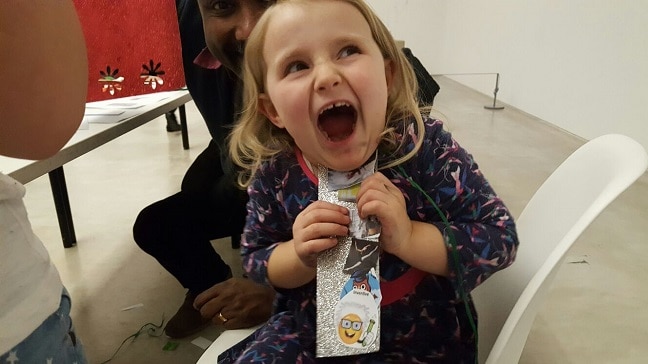
She said: “A change in family circumstance such as a bereavement, break up, or house move typically manifests itself in changes of behaviour.
“Children are often unable to express themselves fully verbally so could become withdrawn or aggressive and may find it difficult to interact with children or adults and in turn may be unable to focus on their learning.
“As part of the work I do in Sunbeams, I talk about change happening throughout life, how our feelings change, and how to find the positives in change. I teach children the tools to cope with changes. Many adults can’t cope with pressures and change as they haven’t learnt the tools.”
A typical Sunbeams session encourages children to celebrate the special qualities they like about themselves. Children choose from pictures and words to represent their favourite personal qualities, drawing around their own hand and incorporating the qualities to celebrate their ‘uniqueness’.
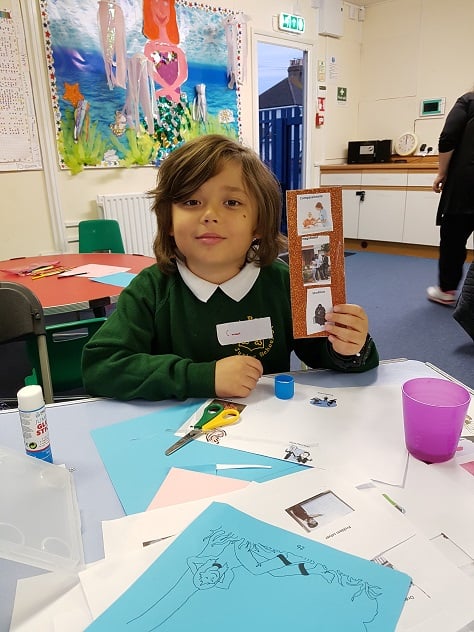
Children also make a Trust Flower, with the name of people they can trust and talk to written inside each petal, as well as pictures of their favourite places to be. Groups of children play the Feelings Game, choosing a feeling to talk about, helping them to explore and accept their own feelings and build empathy for others, too.
Mrs Joulianou said: “These sessions work. Children leave happier and readier to learn, with more confidence in themselves and their abilities. Teachers have noticed how children not only begin the learning process again but are more assertive and confident at contributing in class and making new friends.
“Most importantly, behaviours such as anxiety and withdrawn communication in children is often resolved or improved.”
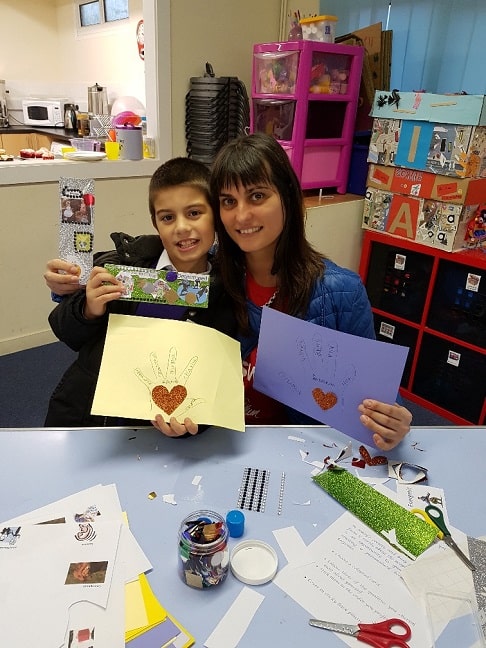
Fran Grabiec, a teacher at Callis Grange, added: “Mrs Joulianou’s work is extremely valuable in helping to develop the confidence of children and their emotional wellbeing – crucial if they are going to be in the best frame of mind to learn.”
When children complete the Sunbeams programme, they take away the tools and strategies to help them cope. This individualised ‘toolbox’ is shared with their families and carers so the good work can continue.
Parents are shown how to create their own Feelings Game to aid family communication, so vital in this age of social media and screen time.
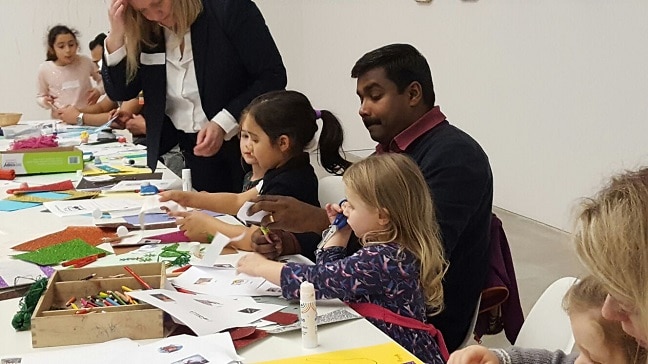
Mrs Joulianou recalled a Year 2 girl, aged 7, who had completed her last Sunbeams session: “I tell the children, ‘I’m always here, you can tell your teacher if you feel you need to come and see me again, but remember we have discussed other people we can talk to’. This little girl told me she looks at her Trust Flower and reminds herself who she can talk to.
“She had totally taken on board the message to ask herself: ‘If something is bothering me, what’s the best thing to do? Talk to someone.’ The worst thing for a child is to keep a worry to themselves.”
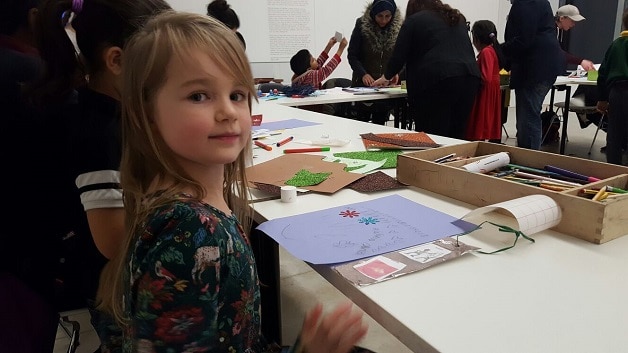
Mrs Joulianou has held family wellbeing sessions in the community too, including at the Gap Project in Broadstairs and Turner Contemporary in Margate in December 2016.
She said: “The session at Turner was hugely successful and showed a real need from receptive families. Parents told me they had arrived feeling exhausted and worn down and left feeling uplifted and energised.
“Children and parents and carers responded so well to exploring each others feelings together and being given that space together to do so. Evaluation comments such as ‘I feel happy’ and ‘I had fun’ showed how well children enjoy addressing important and personal issues if you use creative activities and games and spend quality time with close ones.”
Despite a government pledge to invest in Child and Adolescent Mental Health Services, research by the Royal College of Psychiatrists shows that in 2017, some local NHS areas were spending less than £10 a head on children’s mental health.
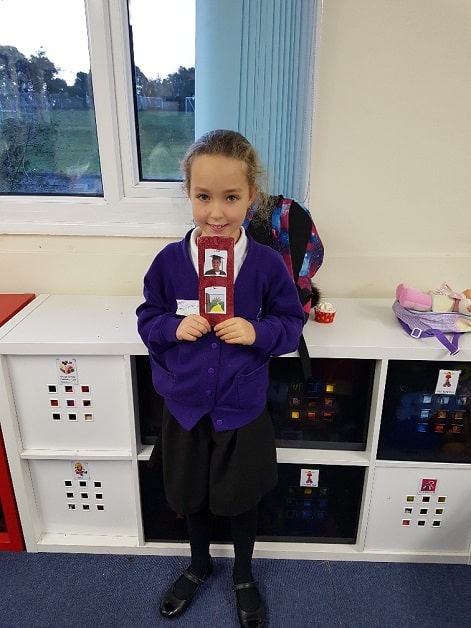
The YoungMinds charity calculates that £85m was cut from children’s mental health services in the five years to 2015.
But Mrs Joulianou remains positive and would like to reach more children not just in her own school but in other local schools, set up a self-harm support group and deliver free workshops for families in the wider community.
She has invited mental health champion Prince Harry to attend her next event planned for Spring.
She said: “I’d like to see all schools have a budget available for this type of work. All children would benefit from learning the tools to deal with every day life, whether they feel they are experiencing difficulties or not.
“It builds long-term resilience to meet new challenges, feel confident and free to express who they are, and reach their full academic and personal potential.“
Contact Pia by email at [email protected] or call 07790531399
Mental wellbeing in children and teenagers
- 24% of girls (or 1 in 4) and 9% of boys the same age are reportedly clinically depressed by the time they reach 14. Their symptoms include feeling miserable, tired and lonely and hating themselves. (Government-funded study by lead authored by Dr Praveetha Patala)
- Children as young as three are self-harming – biting, scratching, punching, slapping themselves or rubbing their skin with a rubber are examples of self-harm among primary age children, report Tappy Twins.
- At least 500 primary school children have reported to Tappy Twins that they self harm and the organisation has waiting lists full of four to 11 year olds.
- In 2016/17, 107 children aged 3-9 were admitted to hospital for self harm with admissions for this age group increasing by 27% in the five years leading up to 2017.
- Girls as young as seven feel boxed in by gender-stereotyping, with more than half of girls aged 7-21 lacking the confidence to speak freely, impacting on how much they participate at school (Girlguiding UK)

